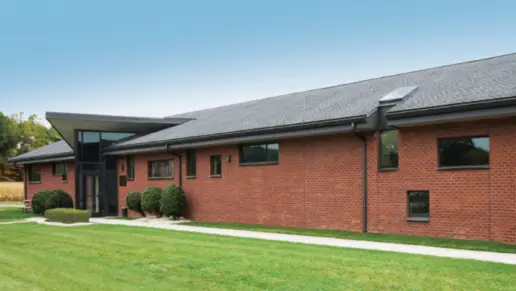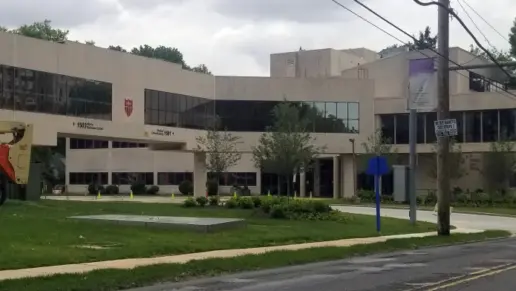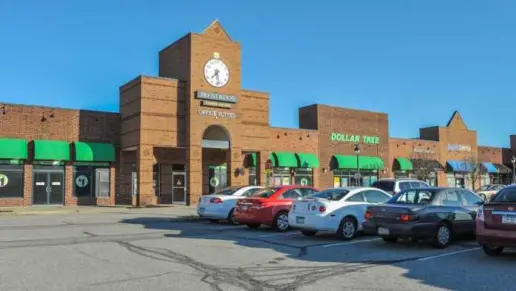I am not a patient but am the loved one of someone who considered Liveration. Glad we did not. This news from today 3/27/2019: The cofounder of a Bucks County drug treatment company and 10 others have been charged in a wide-ranging fraud scheme that, state officials say, t ...
About Liberation Way
Specialty rehab programs at Liberation Way include tailored care focusing on women's specific needs and experiences and gender-specific addiction treatment addressing unique challenges faced by men.
For recreation, patients can use the yoga studio to work on active mindfulness and improve flexibility and foster creativity and jam with other patients in the music room.
Liberation Way has received accreditations from The Joint Commission.
Rehab Score
Other Forms of Payment
Self-pay involves paying for treatment out of your own pocket. You can use savings or credit, get a personal loan, or receive help from family and friends to fund your treatment. If you don't have insurance or your insurance plan doesn't cover a specific program, self-pay can help ensure you still get the care you need.
Private insurance refers to any kind of healthcare coverage that isn't from the state or federal government. This includes individual and family plans offered by an employer or purchased from the Insurance Marketplace. Every plan will have different requirements and out of pocket costs so be sure to get the full details before you start treatment.
Addiction Treatments
Levels of Care
Treatments
The goal of treatment for alcoholism is abstinence. Those with poor social support, poor motivation, or psychiatric disorders tend to relapse within a few years of treatment. For these people, success is measured by longer periods of abstinence, reduced use of alcohol, better health, and improved social functioning. Recovery and Maintenance are usually based on 12 step programs and AA meetings.
Drug rehab in Pennsylvania is devoted to the treatment of addiction. Levels of care, treatment methods, and settings differ, but the aim of each program is to end drug dependency and empower participants to achieve long-term recovery.
Many of those suffering from addiction also suffer from mental or emotional illnesses like schizophrenia, bipolar disorder, depression, or anxiety disorders. Rehab and other substance abuse facilities treating those with a dual diagnosis or co-occurring disorder administer psychiatric treatment to address the person's mental health issue in addition to drug and alcohol rehabilitation.
Opioid rehabs specialize in supporting those recovering from opioid addiction. They treat those suffering from addiction to illegal opioids like heroin, as well as prescription drugs like oxycodone. These centers typically combine both physical as well as mental and emotional support to help stop addiction. Physical support often includes medical detox and subsequent medical support (including medication), and mental support includes in-depth therapy to address the underlying causes of addiction.
Substance rehabs focus on helping individuals recover from substance abuse, including alcohol and drug addiction (both illegal and prescription drugs). They often include the opportunity to engage in both individual as well as group therapy.
Programs


Clinical Services
Cognitive Behavioral Therapy is a short-term, goal-oriented psychotherapy treatment that takes a hands-on, practical approach to problem-solving. CBT is helpful for those whose thought processes have become skewed or irrational. Cognitive behavioral therapy helps with developing awareness of inaccurate or negative thinking, so that the individual can view challenging situations more clearly and respond to them in a more effective way. Simply said, if you change the way you think, you will change the way you behave. CBT is most often used in the treatment of substance abuse, depression, as well as anxiety disorders.
Dialectical Behavior Therapy (DBT) iDBT was developed by Marsha Linehan in the 80s to help those with Borderline Personality Disorder. Since then, DBT has been used throughout the treatment of other personality disorders, suicidal ideation, PTSD, depression/mood disorders, anxiety, substance abuse, as well as eating disorders. “Dialectical” means synthesis or integration of opposites. In DBT, acceptance and change are considered to be the opposites of integration. DBT supports the process of learning acceptance and changing skills. The four major components of DBT are mindfulness, distress tolerance, emotional regulation, and interpersonal effectiveness.
Research clearly demonstrates that recovery is far more successful and sustainable when loved ones like family members participate in rehab and substance abuse treatment. Genetic factors may be at play when it comes to drug and alcohol addiction, as well as mental health issues. Family dynamics often play a critical role in addiction triggers, and if properly educated, family members can be a strong source of support when it comes to rehabilitation.
Group therapy is any therapeutic work that happens in a group (not one-on-one). There are a number of different group therapy modalities, including support groups, experiential therapy, psycho-education, and more. Group therapy involves treatment as well as processing interaction between group members.
In individual therapy, a patient meets one-on-one with a trained psychologist or counselor. Therapy is a pivotal part of effective substance abuse treatment, as it often covers root causes of addiction, including challenges faced by the patient in their social, family, and work/school life.
Life skills trainings involve all the skills a person must have in order to function successfully in the world. These include time management, career guidance, money management, and effective communication. Truly successful addiction recovery is based on the ability to not only live substance-free, but to thrive. Life skills teaches the practical necessities of functioning in society, which sets clients up for success in life, and therefore sobriety.
Motivational Interviewing (MI) is a directive, client-centered counseling style for eliciting behavior change by helping clients to explore and resolve ambivalence. MI is especially helpful in substance abuse treatment as clients can often be ambivalent about the treatment process due to fear, resistance, shame, or denial. The goal of MI is to aid the client in clarifying his or her own perceptions and beliefs in order to direct him or her in a more decisive way.
One of the objectives of recovery is to eliminate the negative behaviors and replace them with healthy, positive behaviors. One area that is most affected during active addiction is nutrition. Alcohol is an example of a substance that leads to empty calories; giving the body the false sense of fullness. This leads to a poor appetite and poor dieting which contributes to health issues and also an increase in mood swings. Individuals will learn the importance of eating meals, preparation of meals and the food groups.
Amenities
-
Private Setting
-
Yoga Studio
Accreditations

The Joint Commission, formerly known as JCAHO, is a nonprofit organization that accredits rehab organizations and programs. Founded in 1951, the Joint Commision's mission is to improve the quality of patient care and demonstrating the quality of patient care.
Joint Commission Accreditation: Yes
Contact Information
90 W Afton Avenue
Suite 101
Yardley, PA 19067


